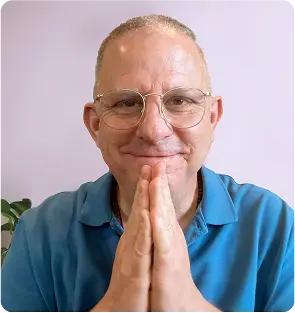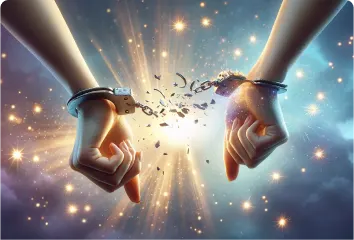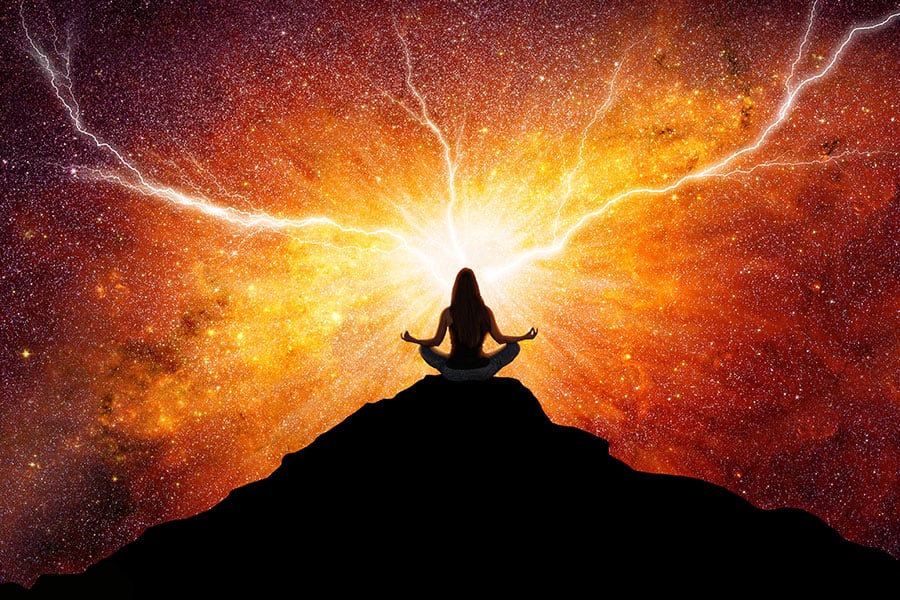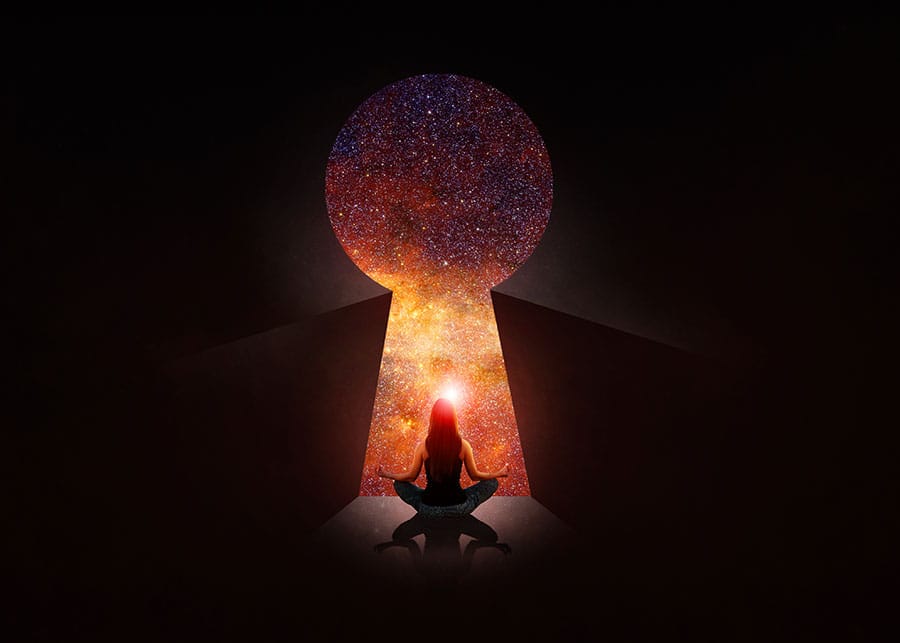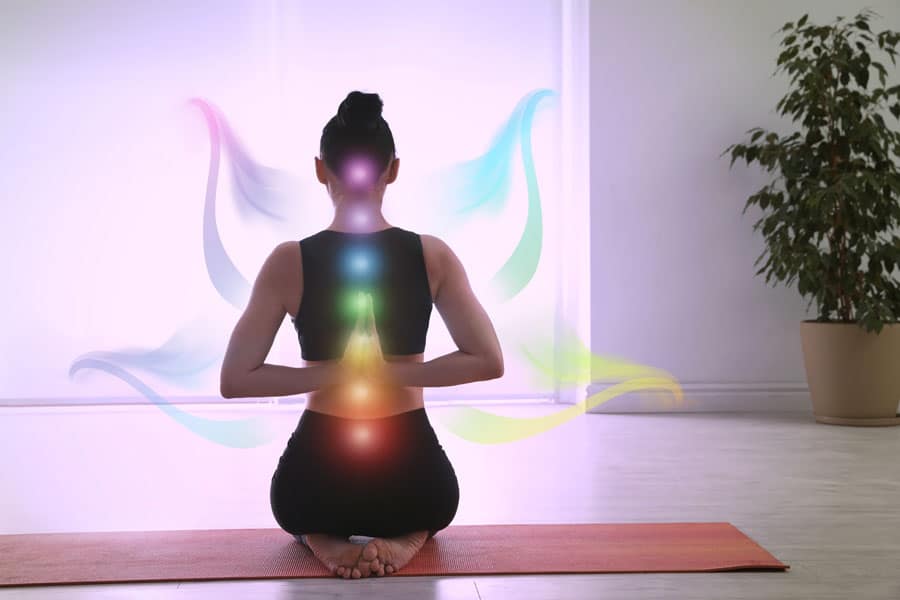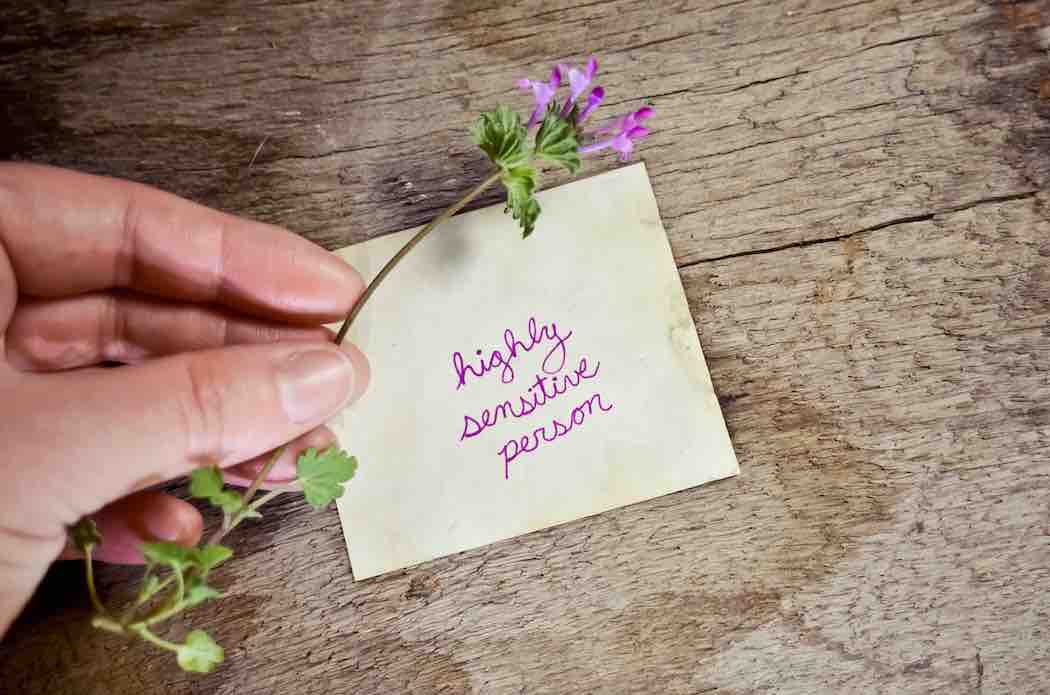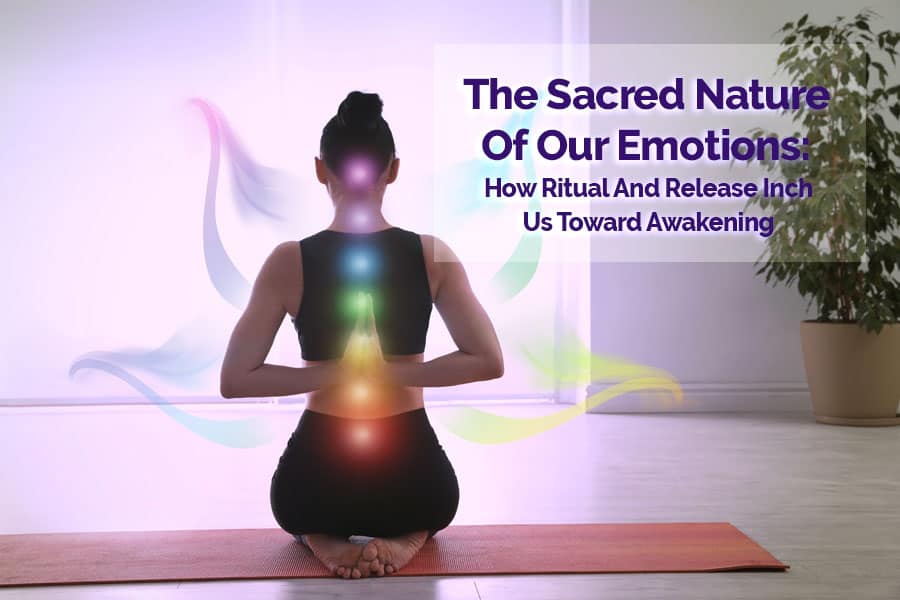
Do you ever feel like your emotions have a mind of their own? One moment, you’re riding a wave of joy, and the next moment you’re drowning in anxiety or frustration. Emotions can feel unpredictable, overwhelming, and at times, downright exhausting!
But what if I told you that emotions are actually powerful bundles of energy which shape your entire reality? If you want to learn how to release and process your emotions to empower yourself and transform your life, read on!
Emotions Are More Than Just Feelings – They’re Energy
Emotions aren’t just fleeting feelings – they are bundles of energy in motion. We can think of these as tiny energy beings which influence and shape our reality.
We experience an emotion when a charged thought enters our mind. This can be something positive, like feeling happy while thinking about a close friend we saw last week.
Other thoughts are more towards the negative end of the spectrum, such as the shame we feel when remembering an embarrassing moment (ya know, like that time you suggested peanut butter during foreplay. Whoops!)
Processing Negative Emotions vs. Cultivating Positive Ones
Positive emotions like love elevate your life and relationships, and can even boost your immune system. In short, positive emotions can help keep you healthy. When you feel aligned and at peace, your body responds with increased energy and balance.
Negative emotions, on the other hand, drain you of focus, energy, light, and health. Hate, blame, denial, anxiety, depression, and fear are just a few of the less desirable emotions that you may experience over your lifetime.
If you hold on to grudges, suffer from anxiety, or tend to obsess over prior traumas, you can’t process or release anything. Chances are you’ve already experienced the consequences in the form of fatigue, foggy brain function, or seemingly ubiquitous bad luck.
If you fill your life with more positive emotions like forgiveness, acceptance, gratitude, and joy, you might find that your experiences are quite the opposite. The stats point to feeling healthier and more active – and you’ll probably enjoy a sprinkle (or waterfall) of “lucky” coincidences!
Don’t underestimate the power of your emotions!

The Power of Our Emotions
It doesn’t take much energy to create emotions. Emotional responses arise effortlessly as thoughts and ideas move through our minds, hearts, and bodies. Over time, they are filtered through our perceptions, beliefs, and past experiences.
However, although these emotions may start out as tiny energy beings, energies of the same frequency all come together to form one collective energy being that can be intensely powerful – sometimes volatile!
The energy of your emotions is so strong that it not only affects you, but can even influence those around you. I’m sure you’ve experienced this (even if you didn’t realize it at the time).
Have you ever walked into a room and immediately felt tension hanging in the air? Or caught a wave of excitement from a buzzing crowd at a concert? Our emotions shift the atmosphere around us.
Think about these examples:
- The hushed, weighty silence in a packed stadium when a professional sports player gets hurt mid-play.
- The infectious laughter of a baby that has everyone giggling along.
- The collective buzz of excitement in a movie theater just when a film reaches its climax.
Emotions are that powerful.
The Hidden Link Between Electromagnetism and Emotions
So, what does this have to do with electromagnetism? Well, everything.
Every emotion carries an electrical charge. As these electrically charged particles interact, they create an electromagnetic force. The magnetism of this force causes atoms to come together, which forms our physical realities.
Without electromagnetism, nothing would come together. To put it simply, we would not and could not exist without electromagnetism.
Thus, every emotion you experience has the power to shape your reality. They emit their own electromagnetic discharges as they continue to move around and live within you.
The energy emitted can and will impact your overall vibrational frequency. Love, peace, and gratitude radiate at a higher frequency, while emotions like anger and fear vibrate at lower frequencies.
Over time, the emotions you hold onto shape your mind, body, and reality.
So, are you forced to just suffer and endure, unable to change your trajectory because of past events?
The answer is an emphatic NO!
While it can be difficult to control our emotions, especially in cases of high stress or trauma, you are not at their mercy. You have the power to shift them.
So, how do you process difficult emotions and use them to fuel your best life? Keep reading, because you’re about to find out!
Practical Ways to Process Your Emotions
The good news is that your nature, soul, and body are all made up of energy – just like our emotions. This means that our vibrations and intentions rule our realities, giving us the power to make improvements based on intentional action.
After all, each of us is composed of light and sound.
You can move, dissolve, improve, integrate, or awaken electromagnetic discharges and emotions so that they continue to work more in your favor:
Mindful Processing (A.K.A. Stop Fighting Your Emotions)
- Stop judging your emotions. Let yourself feel them, even when they hurt. Try to love them like little friends showing up to teach you something. Your emotions are your roommates! LOVE THEM.
- Acknowledge and accept them. Choose the higher perspectives in every situation and your emotions will follow your lead. Never dismiss negative emotions without first accepting and understanding them.
- Take note of how much energy an emotion requires to sustain. Some emotions energize you, while others linger and drain you. Becoming aware of their energy is the first step in changing your relationship with them.
Physical Release (A.K.A. Get That Energy Moving)
- Safely express negative emotions to minimize their internal effects on you. Vent, cry, journal, do a healing ritual, or take a walk.
- Practice constructive anger releasing. It’s also okay to punch the earth and scream – or throw a lamp against the wall (as long as you don’t hurt anybody, including yourself!)
- Move your body. Dance, run, shake it out. Emotions are stored in the body, and movement helps release them.
- Try somatic release techniques. Somatic experiencing helps you process emotions through physical sensations, rather than just mentally analyzing them.
Spiritual Practices (A.K.A. Tune into Your Higher Self)
- Be your authentic self. Open yourself to a pure encounter with your core self – your nature – your divinely inspired spirit.
- Meditate, pray, and forgive. This includes forgiving others AND forgiving yourself.
- Meditate, pray, forgive others, forgive yourself, and
- When you feel something good, SHARE IT. Let it expand in your heart, radiate outward, and provide healing light for not just your entire Being, but others too!
- Do spiritual practices and rituals to uplevel your vibrations
Remember, emotions are energy in motion. Let them move through you, not control you.
Should You Fear Negative Energy Around You?
The short answer is meh, not really.
While there are all kinds of energies in the world, the one affecting you the most is likely your own. If you feel oppressed by negative energy, it’s probably emanating from you, not someone or something else.
This realization should be taken with optimism because that means you’re in control. You can take control of your actions and monitor your responses.
Take active steps to get rid of negative energy. A walk in the woods or a park stroll, daily meditation, and incorporating essential oils into your regime are all great ways to reduce stress and raise your vibration. Consider praying for your enemies as well, as hard as that may be!
While there are negative spirits and energies in this world, the likelihood of being hurt by them is highly unlikely. If you do truly feel you have this issue, you can take a deeper dive into energy clearing and spiritual protection in an intuitive reading with me.
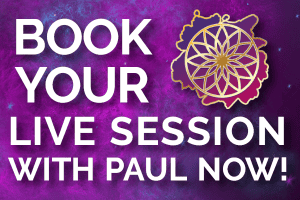
How Your Relationships Can Help You Process Negative Emotions
Emotions don’t exist in a vacuum – they’re deeply tied to our relationships. As I mentioned before, energy is contagious, so you can bet that the emotions we carry affect not just us, but everyone around us. And vice versa.
This means that processing emotions in relationships can be one of the most powerful forms of healing.
When a Conversation Can Heal
Sometimes, it’s as simple as having a conversation.
If you’re feeling tension with someone, start by talking it out, without blame, without assumptions, just honesty. When you express emotions in a way that inspires compassion rather than defensiveness, you open a pathway to real healing.
When It’s Time to Let Go
Then there are the relationships that can’t be fixed with conversations or empathy. Some people’s M.O. is to oppress, control, invalidate or guilt you. When a toxic person in your life takes things a step too far, you need to release them.
Cutting ties may hurt like hell at first, but trust me, your energy is worth protecting.
You’ll ultimately feel better when you surround yourself with authentic individuals who support, uplift, and genuinely give a shit about you. When your circle of friends is vibrant and full of light, you will be, too!
However, it’s also important to:
Release Trapped Emotions Through Radical Forgiveness
If someone does you wrong, forgive them! As a matter of fact, forgive the fuck out of EVERYTHING AND EVERYONE! (Including yourself, as I mentioned earlier).
Why? Because forgiveness isn’t about them, it’s about you. Holding onto resentment is like drinking poison and expecting the other person to get sick. The emotions that result from forgiveness will yield wisdom, clarity, and the kind of peace that no one can take away from you.
Final Thoughts: You Have More Power Than You Think
When you understand that emotions are forces you can work with rather than be controlled by, everything changes.
Some emotions will come and go with ease. Others will cling to you, demanding to be felt, understood, or released. The key isn’t to suppress them or let them run your life; it’s to learn how to move through them, process them, and use them as tools for growth.
Like attracts like, so if you’re emitting higher vibrations, you’ll attract high vibrations!
Did I mention Gratitude and Forgiveness? Oh yeah, I did. Good! Do that!
And if you ever feel stuck – you don’t have to do it alone.
If you’re ready to break through emotional blocks, release what’s been weighing you down, and step into a more aligned, empowered version of yourself, I’d love to help. Book an intuitive reading session with me today, and let’s do the deep work of processing your emotions together.
Remember that you are the embodiment of light and love. Your energy is yours to shape. So own it and live according to your highest potential!



